- Benchmark Education
- Newmark Learning
- Reycraft Books
- Create an Account
Identify and Access High-Quality Instructional Materials
More than half the teachers in the United States devote a substantial amount of time to crafting curriculum for their students, according to a 2020 report.
They do this either by combing through online search engines for appropriate, standards-aligned content or by creating their own instructional materials. Furthermore, nearly one in three teachers say they are encouraged by their principals to create their own lesson plans from scratch. As a result, these teachers have far less time to focus on what matters most: teaching and addressing the needs of their students.
Research has made clear that high-quality instructional materials (HQIM) ease the burden on teachers and have a significant impact on student learning. HQIM also have a major influence on how teachers actually teach—providing them with content they can trust for effectiveness and freeing time that can be invested back into their students.
The end result of using HQIM? Elevated outcomes for students and teachers alike.
Correlation between quality materials and impact in student learning
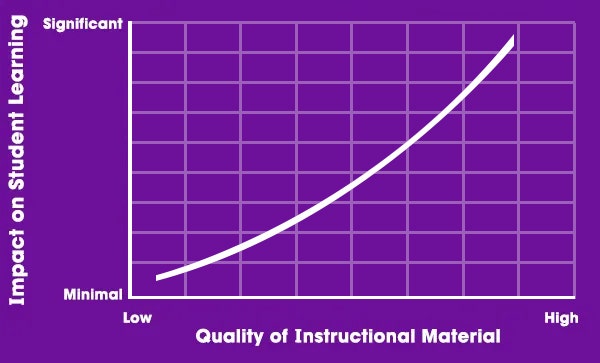
Matthew M. Chingos and Grover J. "Russ" Whitehurst, Choosing Blindly: Instructional Materials, Teacher Effectiveness, and the Common Core (Washington, D.C.: Brown Center on Education Policy at the Brookings Institution, April 2012 )
According to various studies:
- HQIM have “moved students’ achievement in reading, math, and science performance from the 50th to the 60th or even 70th percentile – a potentially transformative impact if aggregated across an entire class, grade, or school.”
(Steiner, David M., Berner, Ashley, Reilly, Joseph, Ross, Steven M., Morrison, Gary R., Lake, Cynthia, Reid, Alan J., and Bjorklund-Young, Alanna. 2017. “StandardsWork: A Narrative Research Review.” Center for Research and Reform in Education; Institute for Education Policy. Baltimore, MD: Johns Hopkins University.)
-
Access to rigorous coursework has increased achievement for Black and Latino students.
(Card, David, and Giuliano, Laura. 2016. “Can Tracking Raise the Test Scores of High-Ability Minority Students?” NBER Working Paper Series. Cambridge, MA: National Bureau of Economic Research.)
-
English Language Learners acquire knowledge and vocabulary faster when using grade-level content (with supports).
(Zwiers, Jeff. “Building Academic Language: Essential Practices for Content Classrooms, Grades 5-12.” San Francisco; Newark, Del.: Jossey-Bass ; International Reading Association, 2008.; Walqui, Aída, and Heritage, Margaret. 2012. “Instruction for Diverse Groups of English Language Learners.” Stanford, CA.)
The HQIM Essentials
Instructional materials are considered HQIM if they adhere to the following:
- They align to standards. The materials should provide teachers with clear benchmarks and guidance for instruction and assessment, thus enabling them to address the needs of every student. The materials should also emphasize grade-level content as much as possible and focus on acceleration rather than remediation.
- They provide rigorous instruction. The materials should use elements of the Universal Design for Learning framework, which is rooted in the belief that every learner is unique and brings different strengths and weaknesses to the classroom. Rigorous materials are flexible and enable teachers to address the needs of a variety of students, including those with learning disabilities and English learners, while providing students with opportunities to engage in meaningful, authentic learning activities.
- They connect to current research. The materials should be research-based, driven by well-established instructional strategies that have shown effectiveness when used with students spanning a range of abilities.
- They reflect diversity and inclusiveness. The materials should deepen content knowledge while being culturally and linguistically diverse. They should ensure that all students can see their lives, backgrounds, and perspectives represented, while also opening their minds to worlds, people, and points of view outside of their own experiences.
- They connect to high-quality professional development. The materials should be supported by sustained, comprehensive, research-based professional development grounded in the use of these materials, to help teachers make the most of them in the classroom. Professional development can include online courses, videos, webinars, and facilitated online communities.
Benchmark Education Company offers a vast array of high-quality instructional materials in English and Spanish, created by acclaimed and culturally diverse authors and illustrators.
Explore the HQIM available through our robust, effective, and culturally relevant programs. Start here:
Represent
Print + Digital • Grades K-6
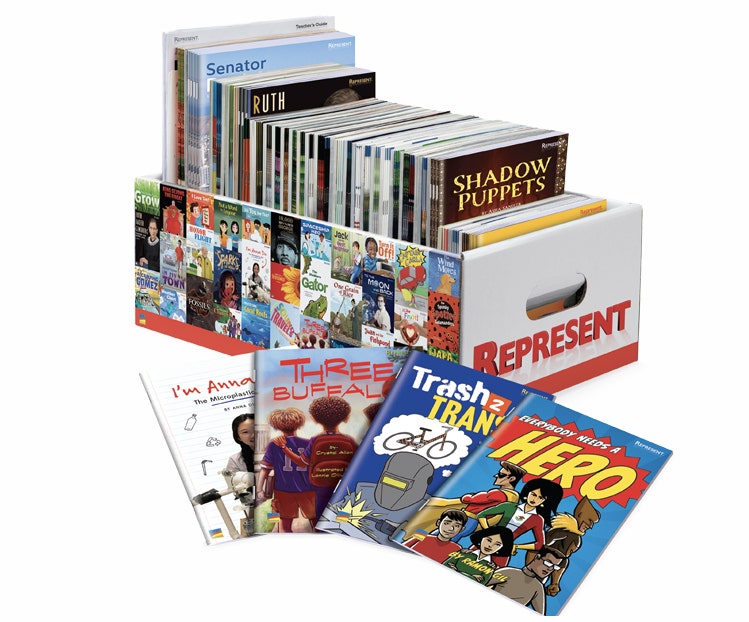
Authentic literary and culturally inclusive informational texts tell community stories, histories, and experiences, developing critical thinking skills and expanding understanding while honoring the cultures and humanity of students and families, showcasing and celebrating the diversity of our society, and supporting K-6 students’ sense of belonging—of seeing themselves and others.
Learn MoreBenchmark Advance & Adelante
Print + Digital • English & Spanish • Grades K-6
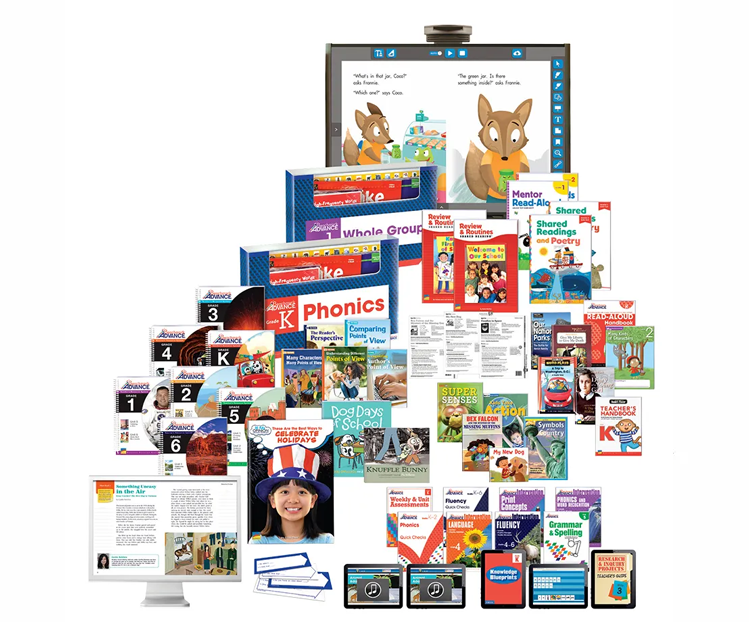
Knowledge-based K-6 literacy solutions nurture growth and success in all students. Aligned with Science of Reading research, Benchmark Advance and Adelante are core language arts programs that provide a cohesive structure for the development of literacy skills and content knowledge.
Learn MoreAuthentic Voices Library
Print + Digital • English & Spanish • Grades K-5
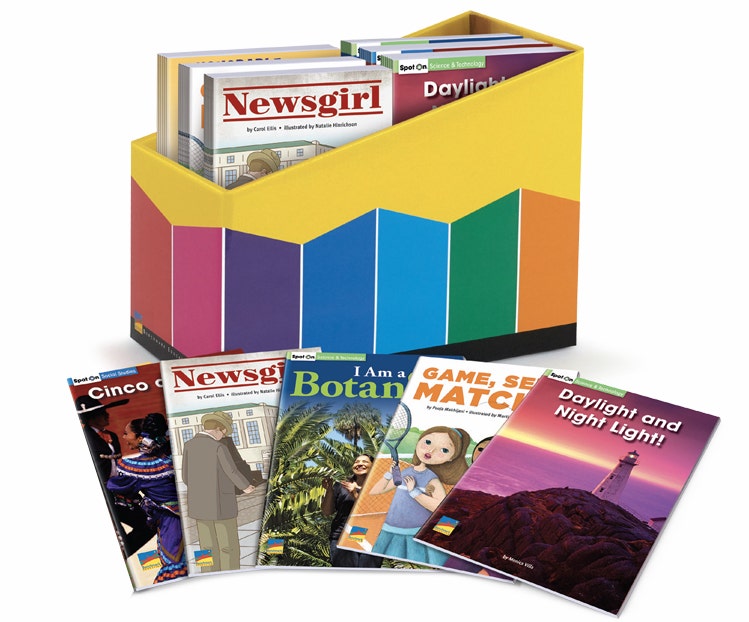
Each English and Spanish BookRoom contains 500 culturally relevant texts created by a team of dozens of acclaimed multicultural authors and illustrators and including literature, social studies, and science & technology titles. Diverse characters and real-world topics are high interest for students, enriching instruction and building content knowledge.
Learn MoreSpot On
Print + Digital • English & Spanish • Grades K-5
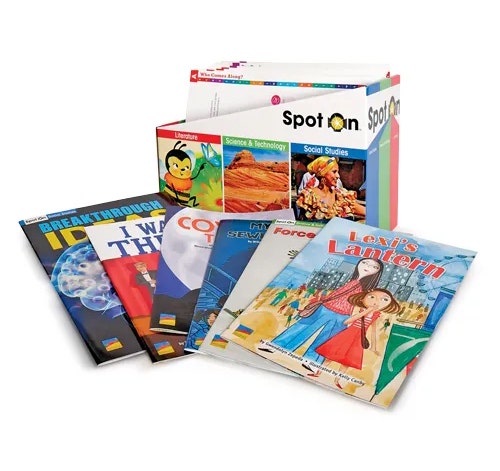
Small-Group fiction and nonfiction—authentic literature, social studies texts covering key content strands, and science and technology texts that support NGSS standards—build content knowledge through a lens of cultural relevance, fostering multiple perspectives and enriching instruction.
Learn MoreReycraft Books Culturally Relevant Trade Book Libraries
Grades K-6
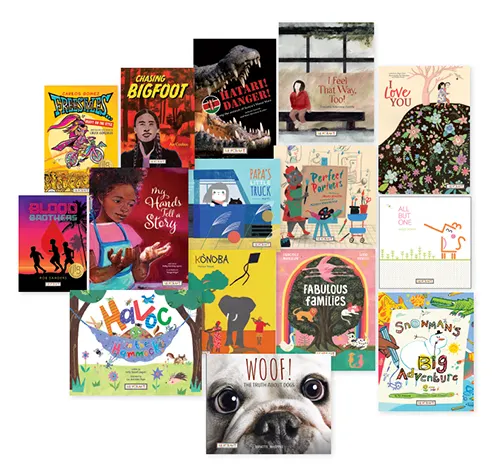
Knowledge-based K-6 literacy solutions nurture growth and success in all students. Aligned with Science of Reading research, Benchmark Advance and Adelante are core language arts programs that provide a cohesive structure for the development of literacy skills and content knowledge.
Learn MoreNeed Help Selecting Resources That Are Right for You?
Provide your detail below and we’ll be happy to assist.
